Moore mayor esteemed for 30 years of service: 'An institution in our metro.'
- Oops!Something went wrong.Please try again later.
MOORE — No matter who will try to fill his shoes, Glenn Lewis has already proven a tough act to follow.
First elected in 1994, local jeweler Glenn Lewis, 68, has served as Moore’s mayor for 30 years, during which time the city has transformed from a struggling suburb within the margins of Norman and Oklahoma City into a growing hotspot for developers.
“When I first started, all we did was fight and fuss about everything, and not a whole lot was accomplished,” Lewis remembered of the mid-1990s Moore City Hall during a phone call with The Oklahoman. “But once we got city council under control and got everything kind of situated, we were basically taking care of business and it got a lot better for us. We concentrated on getting new businesses in, generating new income for the city. And after that, you know, once you have money, you can do a lot of things, so that helped us a lot.”
Doing a lot of things in Moore was always what Lewis had hoped. His younger brother, Tim, co-owner of Lewis Jewelers for nearly five decades, recalled the day his older brother spontaneously announced he would file for mayoral candidacy so many years ago.
“And I said, ‘Now, why on God’s green earth would you or anybody else want to be the mayor of Moore?’” Tim remembered asking his brother. “Glenn stops, hand on the front door, and he looks back at me and says, ‘Because I’m tired of hanging my head in shame when people ask me where I live.’”
More: Moore jeweler displays multifaceted skills in more than 2 decades of service as mayor
A mayor devoted to economic development of his city
Moore was “a mess,” Lewis remembers, with an annual budget of $18 million, fewer than 100 city employees, and no businesses south of 4th Street. When Lewis first took office in May 1994, he said the city had to borrow money to even make payroll.
But Lewis had studied political science during college, and his focus as mayor immediately turned to economic diversification for the city. His brother Tim recalled how the newly elected mayor persuaded Walmart to build a supercenter in Moore, which opened the door for Lewis to draw other major retailers to Moore, including Target, JCPenney, The Home Depot, Lowe’s, Dick’s Sporting Goods, and most recently Costco.
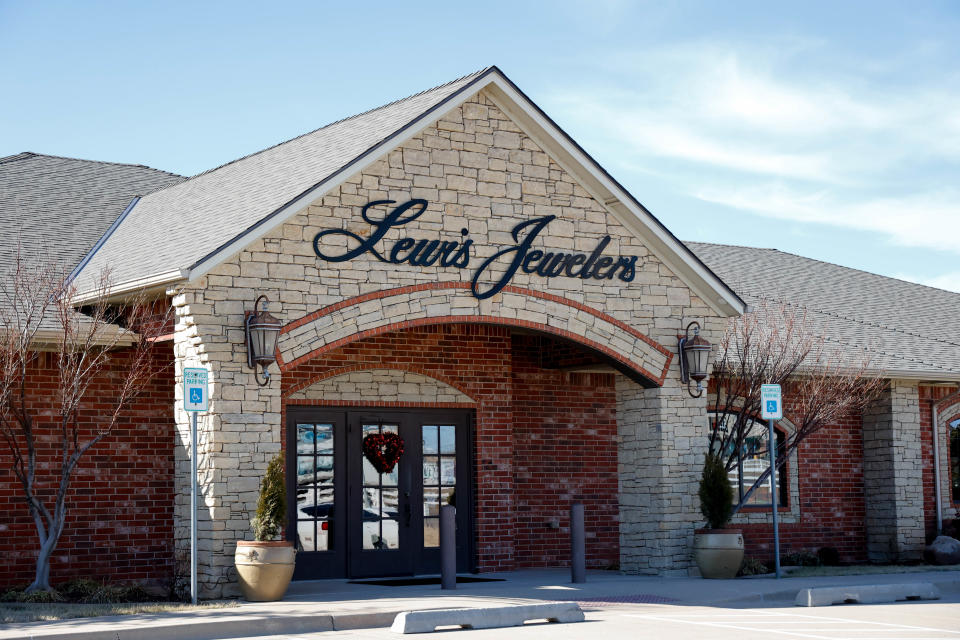
But it’s the story of how Lewis landed the deal for the Warren Theatre location that Tim thinks is the best example of his brother’s negotiating skills. Owner Bill Warren had been scouting the central Oklahoma region for a new site to build a luxury movie theater, but was feeling discouraged by the length of time it might take to gain approval for permits in Edmond or Norman. Lewis was at City Hall the moment Warren arrived there, and Lewis immediately suggested he fill out a permit and check out a possible location in Moore with him.
For many of these projects, Lewis also said he was lucky to have help from the other city employees supporting him. Retired longtime City Manager Steve Eddy and Assistant City Manager Stan Drake had graduated from Moore High School alongside Lewis in 1973.
“They could trust each other, and they literally changed the culture of the town by just creating a business-friendly atmosphere,” Lewis’s brother Tim said. “Glenn built this overall attitude of, ‘Hey, we want you to succeed as a business in our town; we want you to be selling things so that you can collect sales tax dollars for the city of Moore.’ It ain’t rocket science — it’s pretty simple,” Tim laughed.
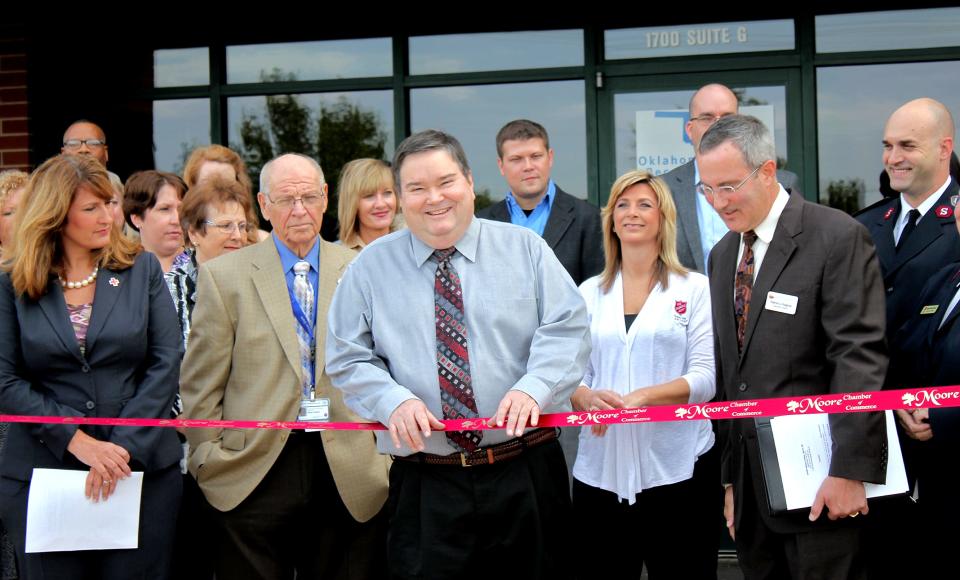
Eddy had spent 10 years with the city as community development director before being promoted to city manager in 1999. He remembers the boost in economy and identity Moore gained from the arrival of retailers like Walmart, Lowe’s and Kohl’s in the mid-1990s through the early 2000s.
“Before that, we were a veteran community, a little bedroom community between Norman and Oklahoma City where nobody worked but where people did want to live and wanted to send their kids to school and wanted to worship,” Eddy told The Oklahoman. “But if they wanted to eat at a nice restaurant or eat at anywhere, really, other than a McDonalds or a Mexican food place or two, they had to go outside of the community — and certainly to shop, they had to go outside of the community. But that’s not the case now.”
'The most experienced mayor in dealing with FEMA disasters'
The year 1999 changed all of that, Eddy said. Disaster struck in May of that year when an EF5 tornado killed more than 40 people and left a devastating trail of $1 billion in damage.
In the wake of the 1999 tornado, Lewis became the public face of Moore, coordinating relief operations and often appearing on television stations broadcasting locally, nationally and internationally. Then-President Bill Clinton came to visit Moore, telling Lewis that he was becoming “the most experienced mayor in dealing with FEMA disasters.”
When asked in January about his leadership role during the 1999 disaster, Lewis was humble, attributing much of the city’s successful rebuilding strategy to city management and saying he “basically stayed out of (Eddy’s) way.” But contemporary reports show Lewis took a direct role in different initiatives, like sheltering hundreds of pets thought lost during the tornado and smoothening the permit process for contractors to make necessary repairs to damaged buildings.
“Our job was to talk to the citizens, keep them calmed down, and just basically make sure they rebuilt Moore, and that was our primary job at the time,” Lewis said.
Eddy said that he, Lewis and Drake all agreed that the challenge of cleaning up and rebuilding Moore would take a monumental effort, but that they were driven by an unwillingness to let the city down.
“You lean on your faith, you lean on your family, you lean on your friends, and you also just lean on your responsibilities, because we had significant responsibilities to our community,” Eddy said. “And I think one of the things after the ‘99 tornado that we proved, not only to the community but we proved to the larger business world, was that we were a community that would renew itself and be strong and survive.”
Related: The Moore tornado destroyed the Orr Family Farm a decade ago. How they endured, and rebuilt
Moore proved resilient: Between 2000 and 2010, the city’s population grew from 41,000 to 55,000, and the opening of the Warren Theatre in 2008 was "another star on our crown," Eddy said.
But that post-1999 Moore renaissance was threatened after another disastrous EF5 tornado ripped through the city in May 2013, leaving $2 billion in damage, destroying schools and swaths of homes, injuring hundreds and killing at least 25 people, including 10 children.
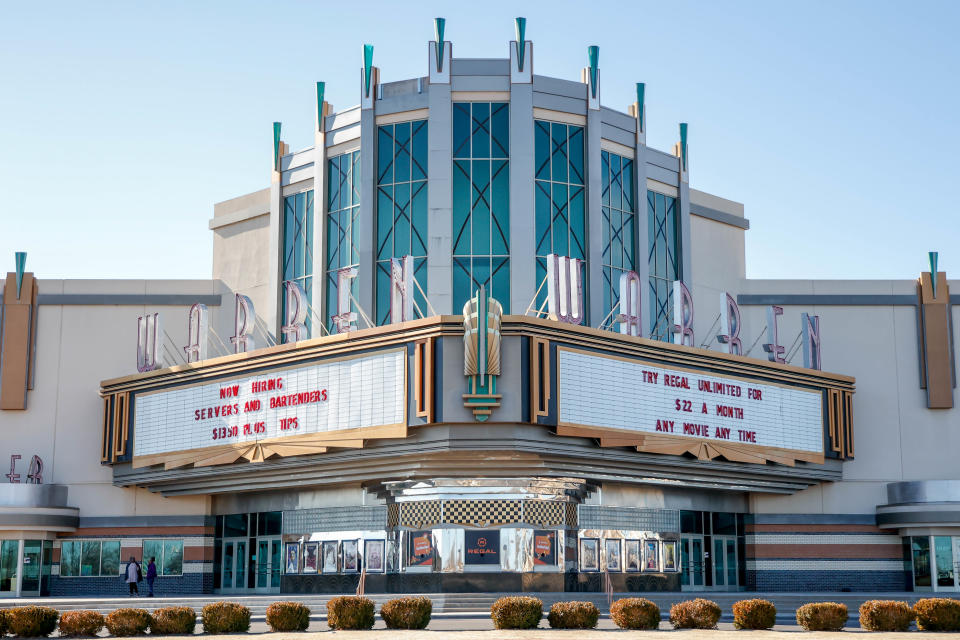
The deaths of so many children made the response to the 2013 tornado more emotionally difficult, Eddy remembered. But he, Lewis and Drake were prepared for what they needed to do again, thanks to the blueprint they’d already laid out for themselves after 1999. When then-President Barack Obama visited Moore to see the damage himself and offer assistance, federal emergency responders followed the city’s lead, rather than the other way around.
“One of the things with the first tornado was the experience to deal with the second tornado, so it made us a little more efficient,” said Lewis, who became an advocate for storm shelters in new and existing homes. “So we probably have more experience with large tornadoes than just about any other city in the country. And we think we’ve figured out not only how to get through those times and how to work through the system with the governments and all that, but also to help people get over it, as well.”
More: 1999 tornado outbreak helped Moore prepare for future storms
'An institution in our metro'
Closing in on a 30-year career as a public servant, Lewis decided last year not to seek reelection. That did not surprise some of his closest friends and colleagues. Lewis suffered a deep personal loss when his wife of four decades, retired schoolteacher Pamela Jean, died in late 2022, and he himself has acknowledged recent issues with his health.
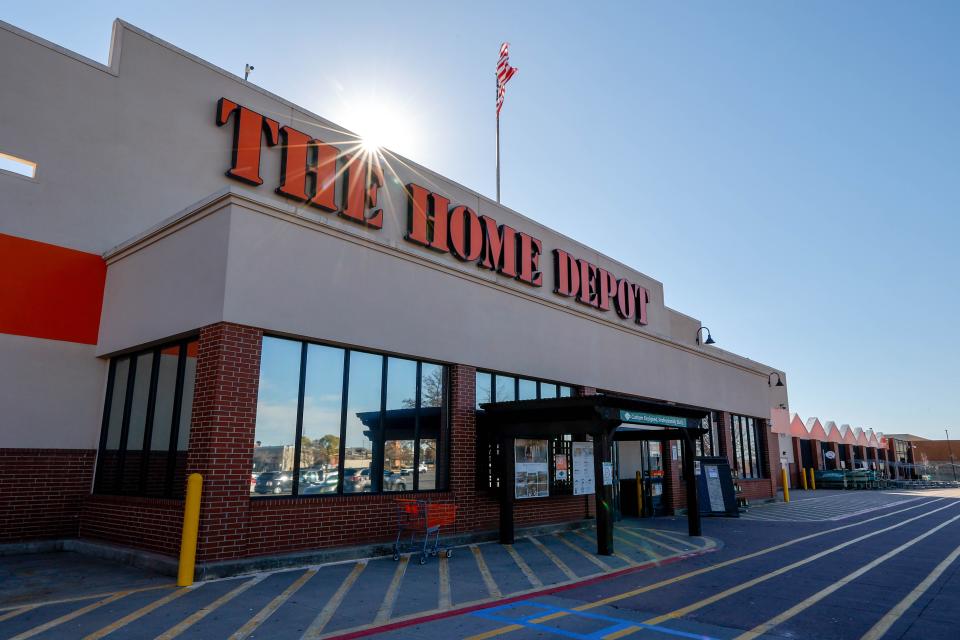
"If I had felt better, and I could do the job, to where I felt like I needed to do the job, I would still be running for office," Lewis told The Oklahoman.
Republican U.S. Rep. Tom Cole, who's lived in Moore for more than 60 years, said that when his family first moved there in 1960, the city was home to 1,700 people, compared to the 63,000 that live there today. He said Lewis' wife, Pam, was his son's third-grade teacher, and now his son is an educator himself. Cole also recalled his own late mother's brief time as Moore’s mayor in 1990 before returning to the state Senate the next year.
“You have to know what Moore politics was like back in the ‘80s into the early ‘90s,” Cole told The Oklahoman over the phone from Washington. “It was pretty brutal and personal, you know, hard-nosed dirty, to be quite honest. But Mayor Lewis ended all of that. The kind of people that he’s attracted into our council that want to run and be part of the success he was building, the kind of quality he’s brought to our police and fire department, the city managers we’ve had — they’ve just been top notch. He just knows how to attract good people, motivate them, and build them into a team.”
Cole further praised Lewis’ competence and leadership, calling his time as mayor “the most consequential in the history of Moore, without question.”
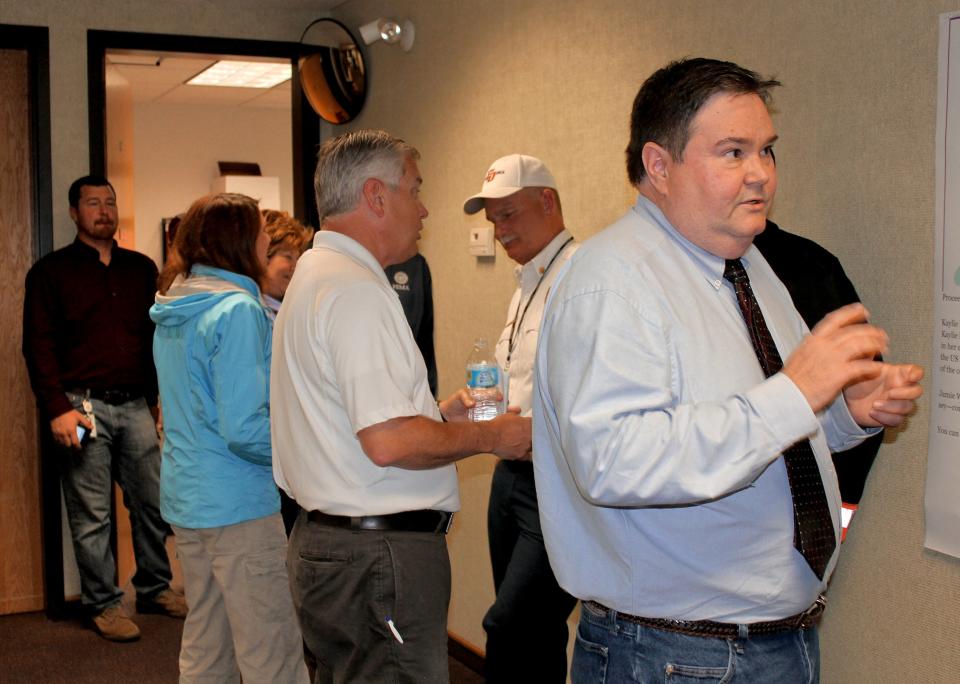
“As a person who lives there, I think he’s the best mayor in the state, I really do, over a long period of time, and he’s been transformative,” Cole said. “If you look at the quality of life in the city, the public works that have been done and particularly the economic development he’s attracted, it’s just unparalleled. It’s just one success after another; and the sidewalks, the roads, it’s all been done systematically within budgets, no financial crisis. It’s like Moore having its own MAPS program or something.”
City leadership also credit Lewis with helping keep the city thriving and unified over the years. His brother thinks it was because he was uniquely qualified to do so.
"He was very educated in municipal management and what that entails, instead of just kissing babies and cutting ribbons, that’s for sure," Tim Lewis told The Oklahoman. "And you know, that unimpeachable integrity that really has built our (jewelry) business here, he took that to that City Hall, and lo and behold, it transfers pretty nicely."
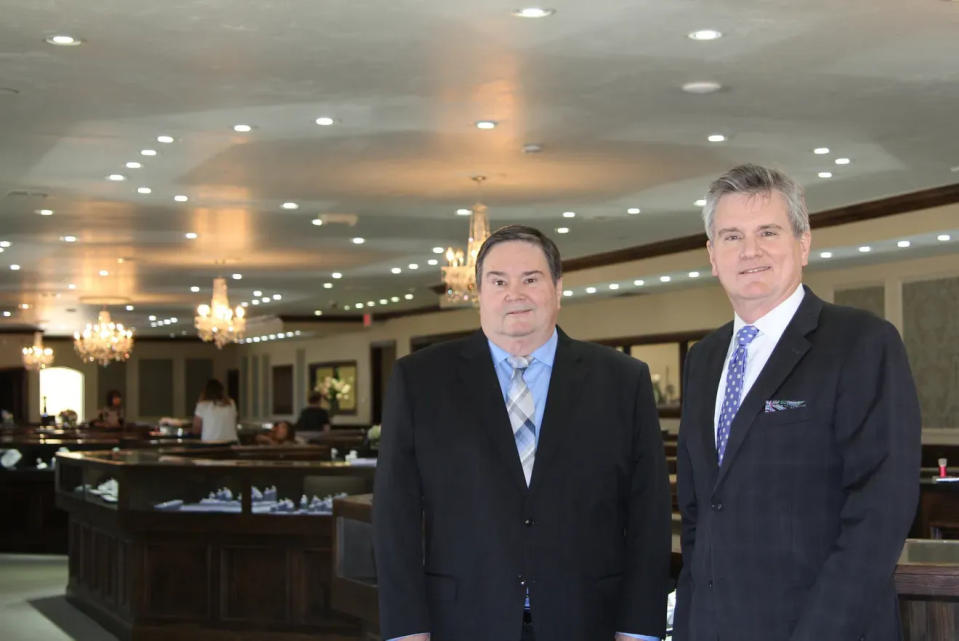
Eddy, who retired after 17 years as Moore's longest-serving city manager in 2016, also believes that Lewis is the longest-serving mayor in the central Oklahoma region, if not the entire state. (The Oklahoman determined that Lewis' closest counterpart in longevity might be Larry Thoma, who served as mayor of Elgin for 25 years from 1997 to 2022.)
Lewis is so highly regarded that, in 2021, city councilmembers unanimously voted to rename a portion of SW 25 Boulevard into Glenn Lewis Boulevard, which is near the Costco that the mayor helped attract to the area.
"Everybody loves the guy, and that’s not an understatement," Eddy said. "He just had a charisma about him that people were attracted to, as far as being friends and as far as voting for him. All over the years that he served, he had very few elections where he had an opponent."
Current Oklahoma City Mayor David Holt once worked for former Mayor Mick Cornett, whose service of 14 years from 2004 to 2018 made him Oklahoma City's longest-serving mayor. But, Holt pointed out, Lewis already had been around representing Moore long before then.
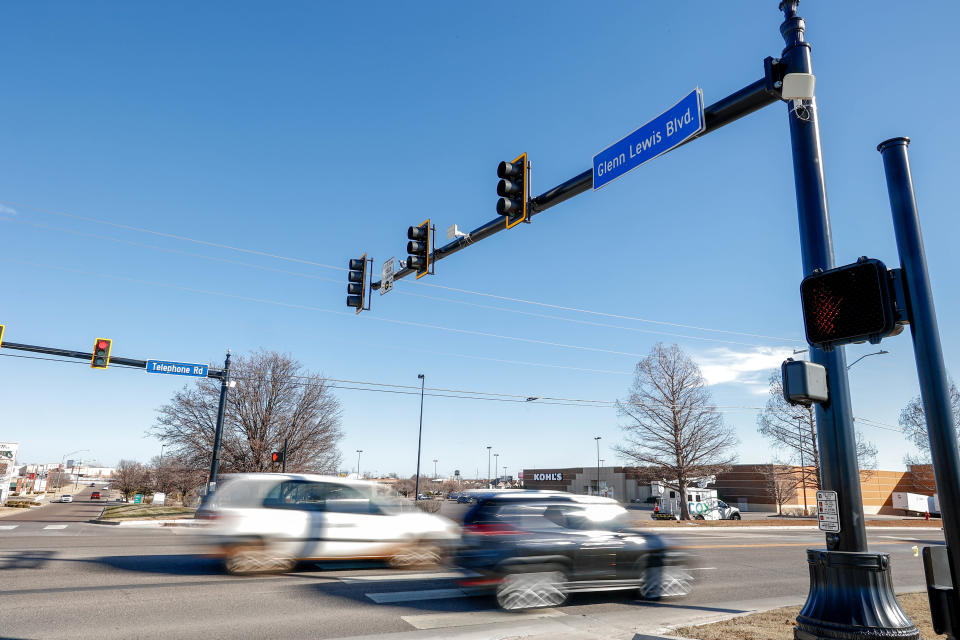
“Mayor Glenn Lewis is an institution in our metro,” Holt said. “When I was elected, he took me to lunch, something he said he’d done with OKC mayors for decades. Moore has obviously experienced tremendous growth in his tenure, and much of that was the result of visionary thinking by city leadership.”
“Glenn also led his community through some very challenging times in the wake of the tornadoes," Holt continued. "He will be missed among the ranks of metro mayors, and I wish him all the best in this next chapter.”
Larry Heikkila, elected Norman's mayor in 2022, is much newer to a mayoral role than others in the metro area. He told The Oklahoman that soon after winning election, Lewis and his wife, Pam, invited Heikkila and his wife to their home for dinner, where Lewis passed down advice about the duties of being a mayor.
"Glenn is an exemplary leader," Heikkila said. "I’m grateful for his mentoring then and since then. He is a wonderful person who I will miss working with as a friend."
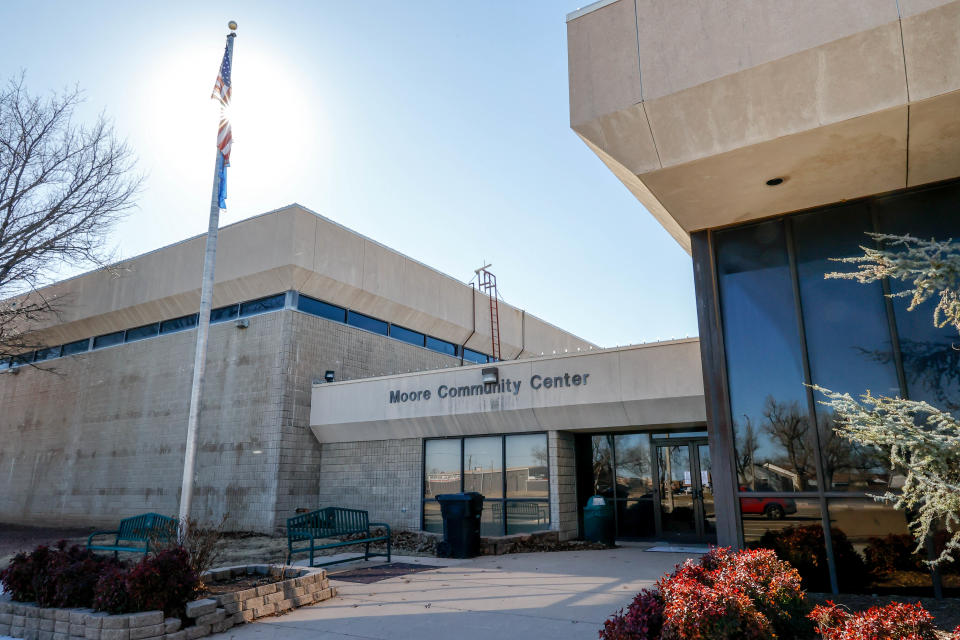
Banker Jeff D. Arvin and Oklahoma City Community College police officer Mark Hamm are running to succeed Lewis. Whichever of them wins the mid-February election, Eddy says they will have big shoes to fill.
"People in our community want to have strong leadership, they want to have a mayor of character, they want to have a mayor who has a vision for the community and wants what’s best for the community," Eddy said. "I can remember Glenn saying, not once but maybe 1,000 times during my time as city manager, he just wanted what was best for Moore, and that’s what these men need to desire, as well."
Current City Manager Brooks Mitchell, who's occupied the position since Eddy retired, said Lewis created a lot of momentum for the city, and that the best way to honor his legacy is to keep it up.
"Just from comments I get from builders and other people that do business in Moore and other cities, they talk about the ease with which things can be done in Moore, and that's a big change that he made," Mitchell said. "Because of his efforts, people want to come to Moore. Here in (February), the first QuikTrip in the Oklahoma City metro area is going to open in Moore, and while I can't speak for QuikTrip, I think that the economic climate that Glenn Lewis created had to play a part into that."
Cole agrees that Lewis' legacy will remain strong for years to come.
"I almost feel sorry for whoever wins that race," the congressman laughed, "because you've got to follow Glenn Lewis. He set the standard. The winner of that race is going to have a significant challenge."
This race, Hamm has the advantage of having served on the city council for many years and gaining Lewis' official endorsement. But Lewis said he also considers Arvin, former chair of Moore's Chamber of Commerce, "a good guy" and believes either of them could do a fine job leading the city.
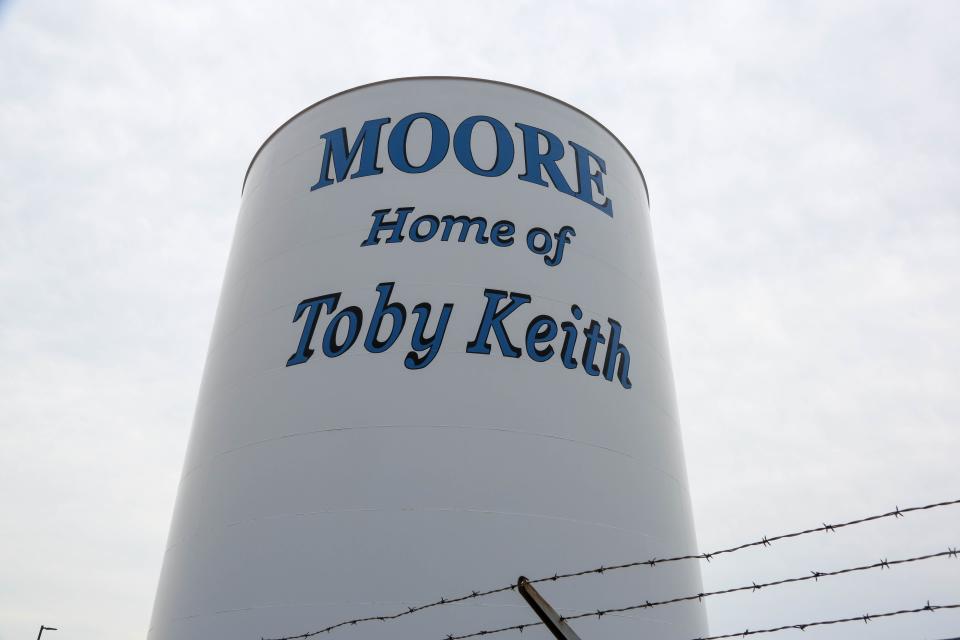
"I just wanted to make sure the government keeps going in a positive direction and that the citizens are well taken care of. That’s the most important part, and a lot of people lose sight of that," Lewis said. "It’s not about city government, it’s not about municipal government at all. It’s about the citizens. They’re the customers, and you’ve got to take care of the customers. So, as long as we keep doing that, we’ll have done our job well."
This article originally appeared on Oklahoman: 'An institution in our metro:' Moore mayor won't run for reelection

